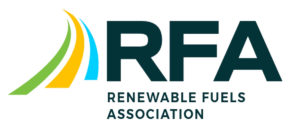 The Renewable Fuels Association (RFA) is sharing documents that show the Environmental Protection Agency (EPA) disregarded Trump Administration recommendations regarding small refinery exemptions.
The Renewable Fuels Association (RFA) is sharing documents that show the Environmental Protection Agency (EPA) disregarded Trump Administration recommendations regarding small refinery exemptions.
Documents obtained by RFA show that the EPA ignored strong recommendations from within the Trump Administration to redistribute Renewable Fuel Standard (RFS) blending obligations lost to small refinery exemptions in the proposed rule for 2020 Renewable Volume Obligations (RVOs).
According to the documents, which detail the White House Office of Management and Budget’s interagency review of the 2020 RVO proposal, some reviewers raised serious concerns about EPA’s failure to redistribute exempted biofuel blending volumes to non-exempt parties. Reviewers recommended that EPA include prospective redistribution of waived volumes in the 2020 proposal and also suggested a method for addressing a court order to restore 500 million gallons of blending obligations inappropriately waived in 2016. In the end, EPA ignored these recommendations.
“The revelations in these documents will only exacerbate the outrage and anger in farm country over EPA’s abuse of the small refinery waiver provision,” said RFA President and CEO Geoff Cooper. “The documents clearly show that EPA knowingly ignored strong recommendations from within the Administration to redistribute blending volumes that were exempted via small refinery waivers. EPA also disregarded recommendations to address a court order to restore 500 million gallons of lost blending obligations from 2016.”
According to comments from one of the interagency reviewers, “EPA … put a zero (0) in for projected volume of gasoline for exempt small refineries and projected volume of diesel for exempt small refineries, ensuring your projected totals are not met and all actual outcomes or resulting biofuel requirements are biased to one side, lower.…we recommend conducting an analysis based on expected conditions at small refineries and the historic issuance of exemptions. This would provide a more accurate estimate of volumes of gasoline and diesel for exempt small refineries.”
Reviewers suggested EPA include a projection of exempted gasoline and diesel of 12.5 billion gallons in the RVO formula, which would effectively ensure lost blending volumes are redistributed to non-exempt parties. The suggested projection of 2020 exempted volume is very close to the actual average exempted volume of 12.8 billion gallons of gasoline and diesel fuel during the 2016-2018 period.
To ensure the statutory purpose of the RFS is honored and exempted volumes were reallocated, reviewers recommended that “…[RVO] percentages should be adjusted to incorporate projected gasoline and diesel exempted through small refinery waivers to ensure consistency of your analysis throughout the document.”
In response, EPA essentially blew off the reviewers’ recommendations. The Agency curtly responded that “The approach taken in this proposal is consistent with the approach first laid out in 2011 and followed since, and we have not proposed to revisit it. Whether to revisit this issue is a matter already under review at Agency leadership levels and we anticipate discussing it further while this action is under review.”
“The solution to the small refinery waiver problem was right in front of EPA’s face the whole time, yet they chose to snatch defeat from the jaws of victory,” Cooper said. “The only way to begin calming the anxiety and aggravation in rural America is for EPA to immediately announce that it will resolve these issues in the upcoming 2020 RVO final rule. EPA must adopt the prospective reallocation approach recommended during the interagency review process in the 2020 rule, as well as include the 500-million-gallon remand. Anything short of that will be viewed by farmers and biofuel producers as another sellout to the oil industry and another kick in the teeth to the hardworking families in the Heartland.”
Reviewers also scolded EPA for proposing to ignore a D.C. Circuit Court order to restore 500 million gallons of blending requirements illegally waived by EPA in 2016, stating, “…you reject the ACE court remand because you conclude there is no ‘room’ to incorporate it, knowing that the stated RVO will not be achieved because of the issuance, and lack of incorporation of, small refinery waivers.”
EPA’s response? “This issue and our response to the ACE remand are the subject of ongoing discussions.”
EPA’s brazen disregard for recommendations and advice on SREs from other quarters of the Administration is not new, Cooper added. Only a short time ago, the Renewable Fuels Association and others pointed out how EPA ignored recommendations of the Department of Energy when it came to specific refinery exemptions.

